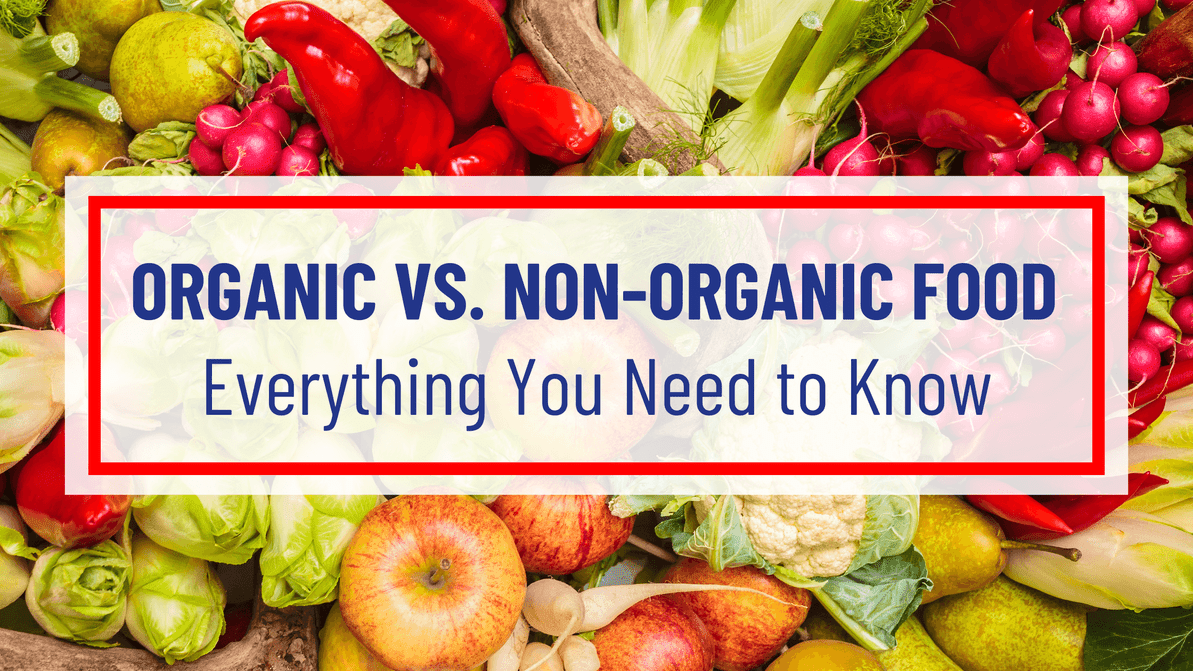Organic vs. Non-organic Food — Everything You Need to Know
Diet trends are everywhere. A quick Google search will help you find supporters of any diet you could think of. And it will also show you its opponents. What about organic vs. non-organic food? Is that just another fad? Or are the people who swear by organic produce on to something?
The past decade has seen a rise in this debate. Many feel organic is better. But there are still plenty of farmers who prefer to grow conventional produce. And enough people prefer these products.
The truth is that organic foods can be costly. So it’s natural to wonder whether they’re worth it or not. Is organic produce healthier? Are all pesticides bad? Are all foods equally contaminated, or are there some that have it worse? We’ll talk about all this and more.
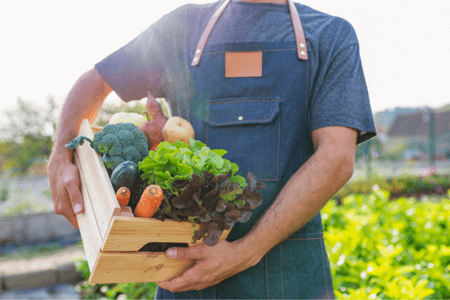
What is organic food?
For food to be labeled “organic,” it must be free of:
- Hormones
- Artificial chemicals
- Genetically modified organisms (GMOs)
- Antibiotics
- Artificial food additives such as coloring, preservatives, flavoring, and monosodium glutamate
To grow organic crops, farmers should use only natural fertilizers. For animal products, no hormones or antibiotics should be used.
In short, organic farming avoids harmful chemicals, making it better for the consumers and the environment.
But don’t confuse “organic” with “natural.” “Natural” is a label you may sometimes see on packaged foods. This means they were made using no preservatives, artificial colors, or flavors. But it doesn’t mention how the ingredients or products were grown. Unless a packaged product is labeled as “100% organic,” it’s safe to assume it’s not.
In the US, there’s also a difference between products labeled “organic” vs. those labeled “100% organic.” The product simply labeled “organic” has about 95% of its ingredients from certified organic sources.
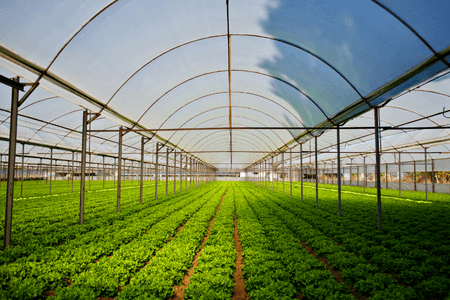
The truth about pesticides
If organic is so much better, the obvious question is – why do so many people still use pesticides to grow their crops?
Pesticides control weeds, pests, insect infestation, and more, which could contaminate and destroy entire crops.
They reduce the risk of losing all your crop within a few days. By keeping out weeds, they allow crops to breathe and have space to grow.
Imagine being a hard-working farmer and having all your work and livelihood destroyed by insects or rats before you can react.
But what if problems go beyond a single person's crop? For example, Phytophthora infestans is a disease that causes the Irish potato famine between 1845-1852. The disease still exists today, but pesticides allow to keep it under control.
Protecting crops with organic farming is not impossible. But it is more challenging and expensive.
Are all pesticides bad for humans? We don’t have a definitive answer yet.
The Agricultural Health Study is an ongoing study examining the effects of pesticide exposure in humans. The conclusions so far have told us that children are more susceptible to adverse effects such as neurodevelopmental issues.
Other studies showed prolonged exposure to pesticides and other chemicals may impact fertility. Some of these chemicals may even lead to cancer.
In other words, we have enough to know pesticides pose a risk to humans. Hopefully, we will know more details soon.
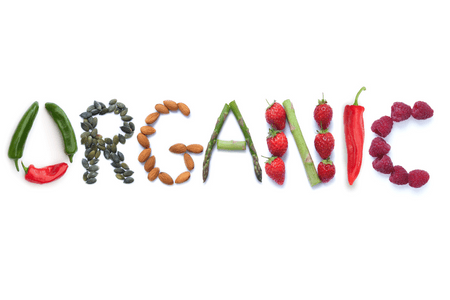
Organic vs. non-organic food – which is better and why
Pesticides are harmful to everyone to some degree. But that is not the only reason many people prefer to eat organic.
Foods grown organically are said to be healthier not only through what they don’t contain but also through what they do contain. Let’s take a look at all their benefits.
Organic food may contain more nutrients
Does that sound impossible? It’s not. Several studies showed organic produce is indeed higher in nutrients such as vitamin C, iron, zinc, and antioxidants.
For example, berries and corn were the objects of a 2003 study that showed when grown organic, these foods can have up to 58% more antioxidants.
These benefits aren’t unique to fruits and vegetables, though. Organic meat, eggs, and dairy are higher in Omega-3 fatty acids.
Not every study out there is positive when it comes to organic vs. non-organic food. Some have simply found no difference in terms of nutrients.
A couple of systemic reviews – one comparing 35 studies, the other, 233 – concluded that there is no substantial difference between organic and conventional produce as far as nutrition goes. Both reviews agree that consuming organic foods can be associated with more positive outcomes. But the differences between the two are not spectacular.
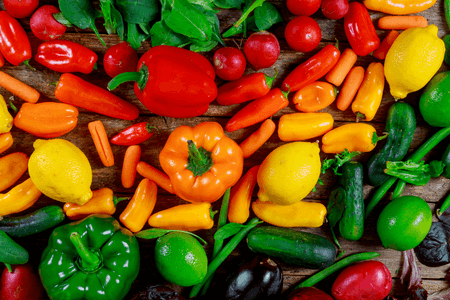
Fewer chemicals mean fewer health risks
It’s no secret that repeated exposure to chemicals comes with health risks. From allergies to increased cancer risk, research has proven chemicals are not people’s best friends.
So what do studies tell us? Most agree organic is preferred. However, in most cases, only small amounts of toxins were found in conventional produce. You’d need to eat a lot over an extended period to experience serious health issues.
For instance, cadmium levels were about 50% lower in organic vs. non-organic food. However, another study concluded that although higher in conventional produce, cadmium levels are still below safe.
By eating organic, you’re also reducing your exposure to antibiotic-resistant bacteria. Antibiotic use is an even bigger issue if you consume animal products. But it shouldn’t be overlooked if you’re vegan, either. The bacteria is commonly found in the soil and can thus get to fruits and veggies as well.
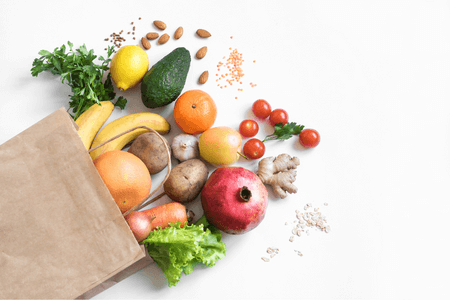
Do some fruits and vegetables have more pesticides than others?
Yes, they do. Not all fruits and veggies are equally contaminated. We don’t know exactly why this variation exists, but we have plenty of evidence.
The 2022 Dirty Dozen
The Environmental Working Group (EWG) publishes an annual list of the 12 most contaminated fruits and vegetables on the market. Their analysis is based on samples tested by the US Department of Agriculture.
This list has become known as the “Dirty Dozen,” and it’s safe to say, if you want to start buying organic, these foods should be the first you try.
Here are the foods that made it to EWG’s Dirty Dozen list in 2022*:
- Strawberries
- Spinach
- Kale, collard, and mustard greens
- Nectarines
- Apples
- Grapes
- Bell & hot peppers
- Cherries
- Peaches
- Pears
- Celery
- Tomatoes
Strawberries, which top the list, tested positive for over 20 types of pesticides. The others on the list come close. Spinach, for instance, contained twice more pesticide residue than any other fruit or vegetable.
The list was the same in 2021, but some foods were in a different order. For example, bell & hot peppers were number 10, whereas this year they’re number 7.
Sadly, the fact that the 2021 and 2022 lists contain the exact same foods shows that nothing has changed. Pesticides are still being used in large quantities for these foods.
*See EWG's 2024 list here.
The 2022 Clean 15
Along with their Dirty Dozen list, the EWG publishes another more positive report – The Clean 15. If you must buy conventional produce, these are the safest you can get*:
- Avocado
- Sweet corn
- Pineapple
- Onions
- Papaya
- Frozen sweet peas
- Asparagus
- Honeydew melon
- Kiwi
- Cabbage
- Mushrooms
- Cantaloupe
- Mango
- Watermelon
- Sweet potatoes
Foods make it to this list when fewer than 70% of samples contain pesticide residue.
The US Department of Agriculture tests around 44,000 samples to create both lists.
Despite the thorough testing, the EWG annual report has many critiques. The most prominent is the Alliance for Food and Farming. They argue that even foods on the Dirty Dozen list contain traces of pesticides below the safety limit. Yet, this is never a factor in any of the USDA or EWG reports.
While their arguments are somewhat valid, the fact remains that some produce contains more pesticides than others. And it is also a fact that these pesticides can have a negative impact on health with prolonged exposure.
*See EWG's 2023 list here.
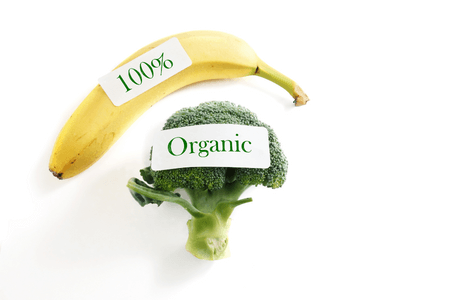
The bottom line
The organic vs. non-organic food debate has been going on for a while. And it’s not going anywhere any time soon.
Both sides have solid arguments. Organic foods are healthier – they have more nutrients and fewer chemicals. Pesticides can have serious side effects, especially with prolonged exposure. Not to mention the damage done by the overuse of antibiotics.
But pesticides can also be helpful. There are still many diseases that could destroy crops across an entire country. Plus, most conventional produce has levels of pesticides well below safe levels.
What are your thoughts on the topic? Do you buy organic? If yes, what products would you rather buy organic, and when are you okay with making an exception? Join us on Facebook and share your thoughts.
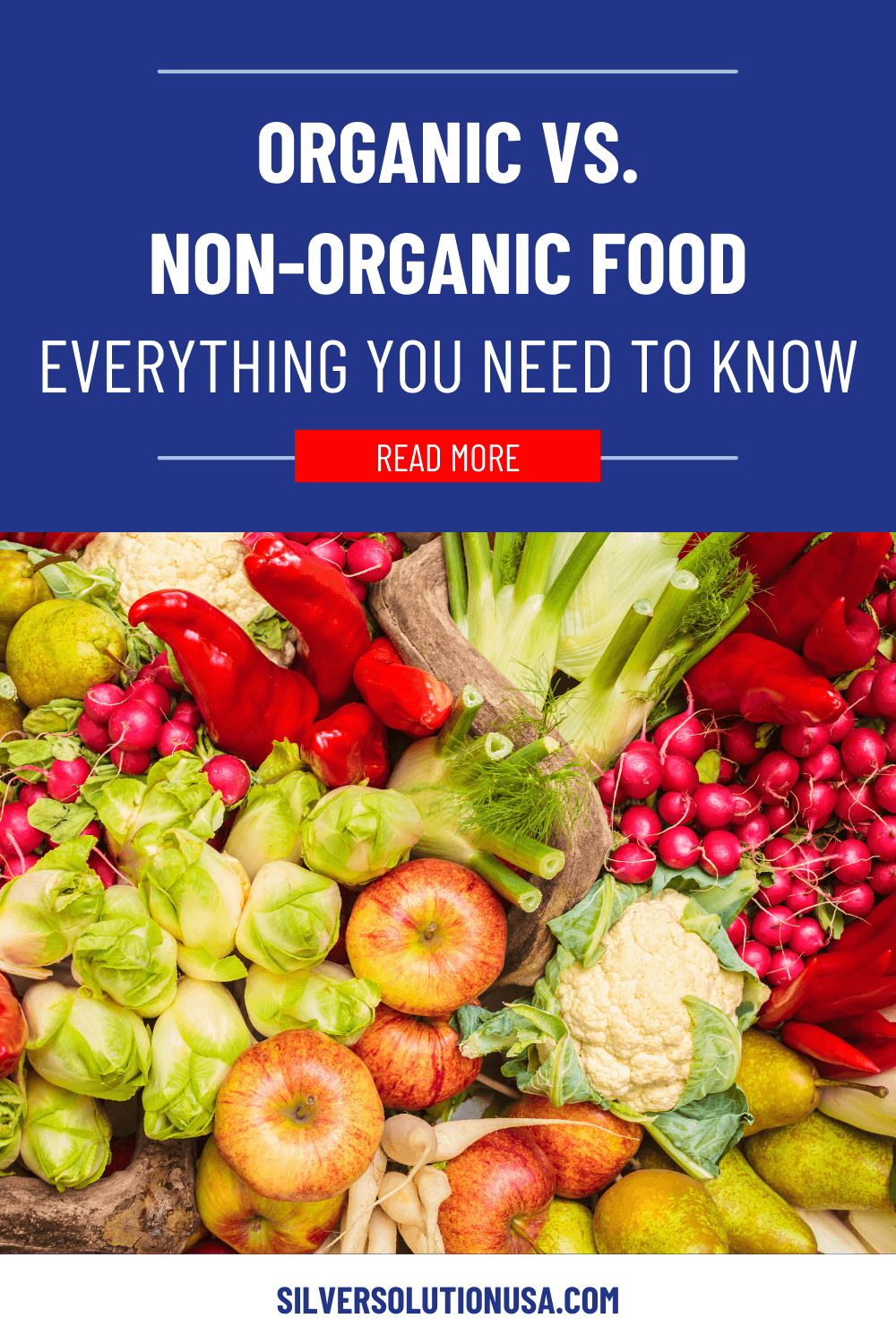
Health/Medical Disclaimer
This blog post does not provide health or medical advice. This blog post is for informational and educational purposes only and is not a substitute for professional health or medical advice. Before taking any actions based upon such information, we encourage you to consult with the appropriate medical and healthcare professionals. We do not provide any kind of health or medical advice. The use or reliance of any information contained on this blog is solely at your own risk.
Sources
https://www.history.com/topics/immigration/irish-potato-famine
https://pubmed.ncbi.nlm.nih.gov/21929333/
https://pubmed.ncbi.nlm.nih.gov/12590461/
https://www.ncbi.nlm.nih.gov/pmc/articles/PMC7019963/
https://pubmed.ncbi.nlm.nih.gov/22944875/
https://pubmed.ncbi.nlm.nih.gov/24968103/
https://pubmed.ncbi.nlm.nih.gov/16403682/
https://www.ewg.org/foodnews/dirty-dozen.php
https://www.ewg.org/foodnews/clean-fifteen.php
Recent Posts
-
Are sunscreen ingredients harmful?
Sunny days can bring a lot of fun. Going out for a swim, spending time in nature, or relaxing on the …18th Mar 2024 -
The Veggie Debate: Does Cooking Vegetables Destroy Nutrients and the Best Ways to Cook Them
Vegetables are one of the healthiest foods you can choose. Some people downright hate them, while so …4th Mar 2024 -
Best Foods for COVID Recovery and Prevention
A few years ago, a new virus took the world by surprise. COVID-19 may look like the flu on the surfa …19th Feb 2024

